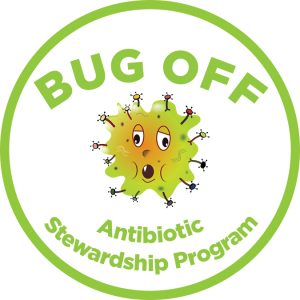
Antibiotic Stewardship Program
Ensuring Medications Remain Effective
Antibiotics and similar drugs, together called antimicrobial agents, have been used for the last 70 years to treat patients who have infectious diseases. Since the 1940s, these drugs have greatly reduced illness and death from infectious diseases. However, these drugs have been used so widely and for so long that the infectious organisms the antibiotics are designed to kill have adapted to them, making the drugs less effective.
Each year in the United States, at least 2 million people become infected with bacteria that are resistant to antibiotics and at least 23,000 people die each year as a direct result of these infections.
Nantucket Cottage Hospital and the island’s physician practices have joined the Centers for Disease Control and Prevention, along with hospitals and healthcare organizations around the country, in developing an ‘Antibiotic Stewardship Program’ to help ensure these precious commodities remain as effective as possible.
What does this mean for our Nantucket patients?
Antimicrobial drugs fight only certain infections, so it is important to use the right one at the right dose and for the right amount of time. Some infections do not need treatment with an antimicrobial drug at all. Frequent and prolonged antimicrobial use can also make you sick. Therefore, Nantucket Cottage Hospital is committed to the safe and appropriate use of antibiotic and antimicrobial drugs and to ensure the best of care for our community.
When you’re feeling ill, it is important to see your local provider. They will determine the best course of treatment based on your symptoms. When a patient needs antibiotics, the benefits outweigh the risks of side effects or antibiotic resistance.
When antibiotics aren’t needed, they won’t help you, and the side effects could still hurt you. Common side effects of antibiotics can include rash, dizziness, nausea, diarrhea, or yeast infections. More serious side effects include Clostridium difficile infection (also called C. difficile or C. diff), which causes diarrhea that can lead to severe colon damage and death. People can also have severe and life-threatening allergic reactions.
Antibiotics do not work on viruses, such as colds and flu, or runny noses, even if the mucus is thick, yellow, or green.
Antibiotics are only needed for treating certain infections caused by bacteria. Antibiotics also won’t help for some common bacterial infections including most cases of bronchitis, many sinus infections, and some ear infections.
If you need antibiotics, take them exactly as prescribed. Talk with your doctor if you have any questions about your antibiotics, or if you develop any side effects, especially diarrhea, since that could be a C. difficile (C. diff) infection which needs to be treated.
Additional Resources
- CDC Antibiotic Resistance
- World Health Organization Antimicrobial Resistance
- Preventing and Treating Ear Infections
